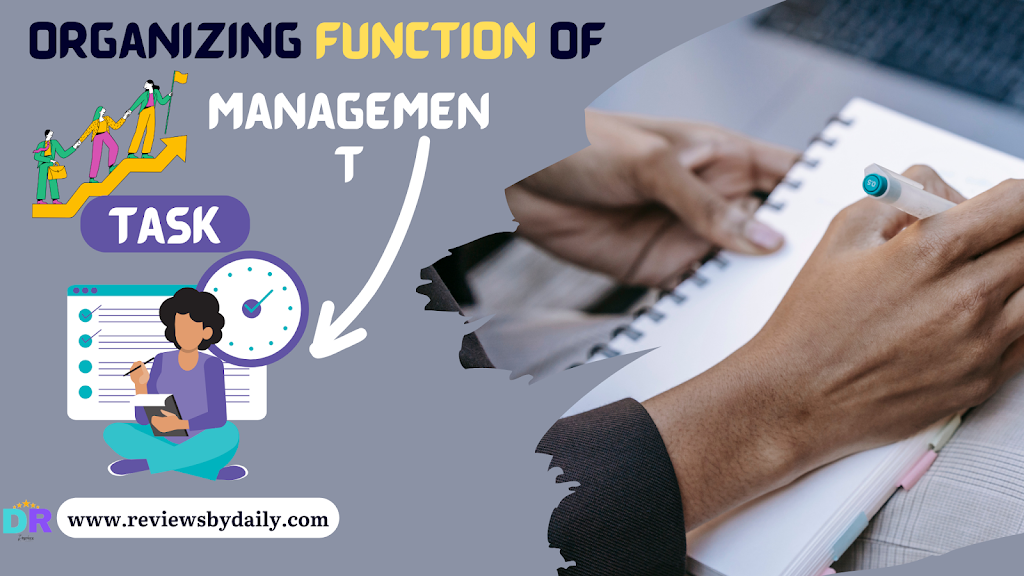 |
| Organizing function of management |
Introduction
In the realm of management, the organizing function plays a pivotal role in ensuring that an organization’s goals and objectives are efficiently met. To understand which tasks are associated with the organizing function of management, we must delve deeper into its significance and the various responsibilities it entails. This article will explore the core aspects of organizing, shedding light on its importance and the key tasks it encompasses.
The Essence of Organizing
The organizing function is one of the fundamental pillars of management, serving as a bridge between planning and execution. It involves the arrangement and coordination of resources, both human and material, to achieve the organization’s goals effectively. Let’s dive into the specific tasks that fall under the umbrella of organizing.
Defining Objectives
The first task associated with organizing is defining clear and achievable objectives. This involves setting specific goals and outlining the steps required to reach them. Organizational objectives serve as a roadmap for decision-making and resource allocation.
Division of Labor
Effective organizing involves breaking down tasks and responsibilities into manageable components. This is known as the division of labor, where each member of the organization is assigned specific roles based on their skills and expertise. This not only enhances efficiency but also promotes specialization.
Also Read: Newrez Myloancare: A Simple Solution to Mortgage Mayhem
Structural Design
Creating an Organizational Structure
Organizing necessitates the creation of an organizational structure. This involves designing hierarchies, departments, and teams within the organization. A well-defined structure ensures clarity in reporting relationships and helps in streamlining communication.
Authority and Responsibility
Determining the levels of authority and responsibility within the organization is another crucial task. This includes assigning decision-making powers and accountability to individuals or teams, ensuring that everyone knows their role in the organization’s success.
Resource Allocation
Budgeting and Resource Allocation
Organizing entails the allocation of resources, including finances and materials, in a manner that aligns with the organization’s objectives. Budgeting plays a pivotal role in this process, as it ensures that resources are utilized judiciously and efficiently.
Human Resource Management
One of the most critical aspects of organizing is human resource management. This includes tasks such as recruitment, training, and performance evaluation. Effective management of personnel is essential for achieving organizational goals.
Read: Mastering SEO Competitor Analysis: Your Ultimate Guide
Coordination
Interdepartmental Coordination
Coordinating various departments and teams is a key task in organizing. This involves ensuring that different parts of the organization work harmoniously towards common objectives. Effective communication and collaboration are essential for successful coordination.
Evaluation and Adaptation
Continuous Improvement
Organizing is an ongoing process that requires constant evaluation and adaptation. Managers must monitor the organization’s performance and make necessary adjustments to improve efficiency and effectiveness continually.
Read: Make Money with Blogger in Just 12 Minutes
Conclusion
In conclusion, the organizing function of management encompasses a wide range of tasks aimed at ensuring that an organization functions seamlessly to achieve its goals. From defining objectives to resource allocation and coordination, each task plays a vital role in the overall success of the organization.
If you’re interested in learning more about management and how it impacts organizational success, don’t hesitate to explore further. Management is a dynamic field that continues to evolve, and mastering the organizing function is a key step toward excellence in this domain.
Read: Voice Search SEO: Preparing Your Website for the Future
FAQS
What is the primary goal of the organizing function of management?
The primary goal of organizing is to arrange resources and responsibilities in a way that enables the organization to achieve its objectives efficiently.
How does the division of labor contribute to organizational efficiency?
The division of labor ensures that tasks are allocated based on individual skills and expertise, leading to increased efficiency and specialization.
Why is continuous improvement essential in the organizing function?
Continuous improvement ensures that the organization adapts to changing circumstances and remains competitive in the market.
What role does communication play in interdepartmental coordination?
Communication is crucial in ensuring that different departments work together seamlessly by sharing information and aligning their efforts.

